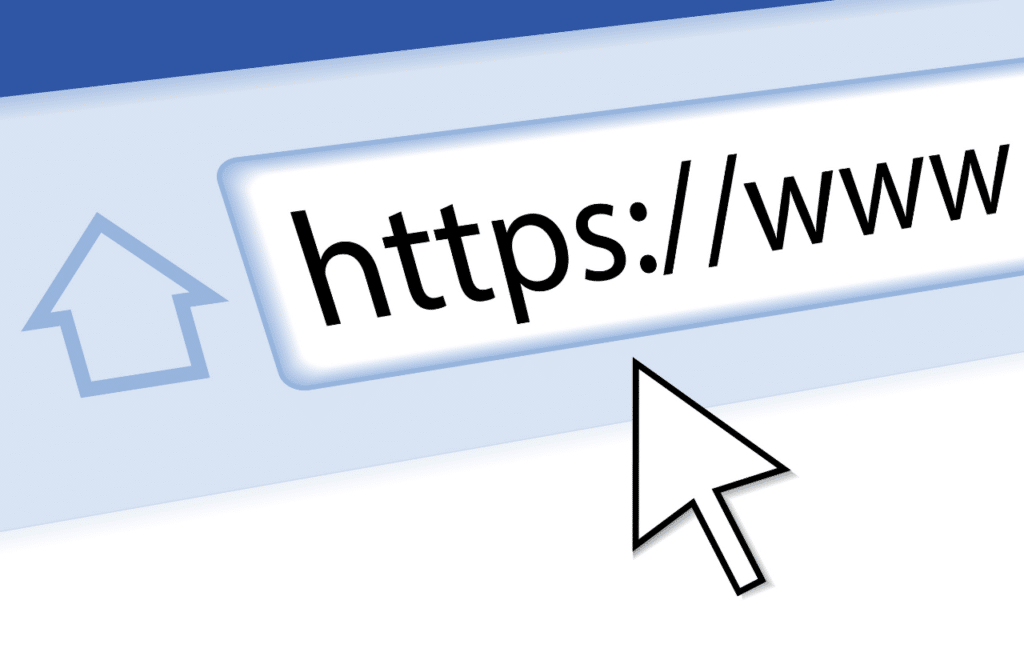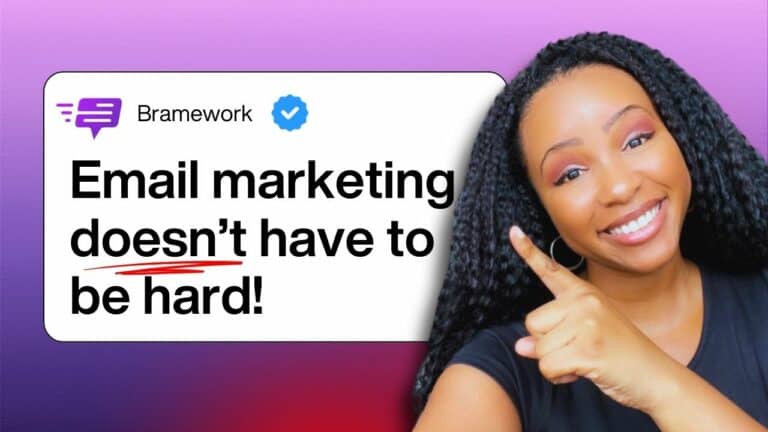🔥 FLASH SALE: Blog to Video is HERE! Plus Analytics AI & Chat Builder. Only 50 licenses left at $179 👉 Claim Your Lifetime Deal!
Is Blogging Still Relevant? The Answer May Surprise You!

Wondering if blogging is still a relevant marketing tool in the digital age? Trust me, I’ve asked myself the same question countless times.
Having poured over extensive research – like Hubspot’s study showing consumers reading blogs multiple times a week and making purchases based on them – it seems clear that blogging remains a powerful way to build presence and authority.
Intrigued? Let’s delve into why and how blogging continues to hold its ground in today’s dynamic tech landscape.

THIS POST MAY CONTAIN AFFILIATE LINKS. PLEASE READ THE DISCLOSURE FOR MORE INFO. Which means if you click on certain links, Bramework may receive a small commission at no additional charge to you.
Will Blogging Still be a Thing in 2024?
Without a doubt, blogging will continue to thrive in 2024.
Regardless of the growing popularity of video content, the relevance of blogging as a marketing tool remains unshaken.
Current data shows that about 50% of blog readers read a blog at least once per week.
This proves blogs retain their significance in delivering information and building trust with audiences.

With over 600 million thriving blogs worldwide fueling an average daily output of around six million posts, it’s clear that blogging isn’t vanishing any time soon.
A well-maintained blog can help businesses increase conversions and sales, thanks to users’ tendency to support brands they trust. Trust is often secured through consistently creating valuable content on your blog.
The Future of Blogging: Predictions for 2024 and Beyond
Content marketing will continue to be the reigning king, with an increased focus on user experience and the rapid growth of video consumption.

Building a strong brand and optimizing websites for Google will also play major roles in the future of blogging.
Content Marketing Remains King
Content marketing continues to reign supreme in the digital landscape.
This approach involves consistently creating valuable content, igniting trust among your audience, and leading to increased conversions and sales.

People patronize brands they trust, which is why it’s crucial for your blog to illustrate your expertise through engaging and informative content.
Following the E-A-T concept—Expertise, Authority, Trustworthiness—will establish you as a leader in your industry.
By regularly churning out thoughtful, keyword-rich blog articles that directly answer users’ inquiries or solve their problems, you improve your site’s Search Engine Optimization (SEO).
Higher rankings on Google search results can consequently boost web traffic and ultimately lead to higher sales rates.

But remember: pursuing effective content marketing isn’t simply about generating leads—it’s also about fostering them.
Incorporate lead-generating call-to-actions into your posts like free ebooks or webinars registration forms.
These tactics can significantly increase visitor-to-lead conversion rates while creating more opportunities for you to develop customer relationships by providing further valuable information and spurring engaging conversations.
Create SEO-Optimized Blog Posts with First Draft PRO in Minutes!
👋 Say Goodbye to Endless Hours of Research and Writing
Increased Focus on User Experience
Crafting a seamless user experience on your blog platform has become more vital than ever.
Search engines like Google now prioritize sites that offer easy navigation, speedy load times, and mobile-friendliness in their ranking algorithm.

As bloggers aiming to shift from part-time to full-time, we need to focus on these elements while designing our blogs.
Use tools such as Statista for gathering data regarding the most preferred layout or design by netizens and then use those insights into building your blog structure.

This way, visitors will not only appreciate the valuable content but also enjoy the browsing experience on your site which can potentially increase web traffic and sales.
The aim is always to get visitors to stay longer and explore more of our content rather than leaving after reading just one blog post.
Rapid Growth of Video Consumption
I’ve noticed that there has been a rapid growth in video consumption lately.
Studies show that more and more people are turning to videos as their preferred form of content. In fact, research by HubSpot reveals that videos are one of the top media forms used in content strategies.

This means that incorporating video into your blogging efforts can be an effective way to engage with your audience and keep up with the latest trends.
So, if you’re looking to leave your day job and blog full-time, it’s worth considering how you can leverage the power of video to attract and retain readers.
🔍 Find Keywords That Actually Drive Traffic
Stop guessing and start ranking. Discover high-value keywords, analyze trends, and dominate your niche free and fast.
Importance of Building a Brand
Building a brand is crucial for bloggers who want to leave their day jobs and blog full-time.
By establishing a strong brand, you can differentiate yourself from the competition and build trust with your audience.

When people recognize and resonate with your brand, they are more likely to visit your blog and engage with your content.
Additionally, building a brand helps you become an authority in your niche, which can lead to opportunities for partnerships, sponsorships, and collaborations.
Remember that consistency is key in building a brand – by consistently delivering valuable content that aligns with your brand values, you can attract loyal followers and turn them into advocates for your blog.
Optimizing Websites for Google
Optimizing websites for Google is crucial if you want to improve your website’s search engine rankings and attract more organic traffic.

By implementing effective SEO strategies, such as conducting keyword research and building quality backlinks, you can increase your website’s authority in Google’s eyes.
This becomes even more important in the future of blogging, as Google continues to refine its algorithms to prioritize authoritative content.

So, if you are a passionate blogger looking to make a full-time income from your blog, it’s essential to focus on optimizing your website for Google by incorporating these tactics into your strategy.
Remember, the higher you rank in search results, the more visibility and traffic your blog will receive.
Outdated Blogging Techniques
Some outdated blogging techniques that are no longer effective include:
- Publishing daily
- Using free platforms for blogging
- Covering too many topics, and
- Attracting random visitors

Publishing Daily
Consistency is a key factor in building a successful blog.
It’s not about publishing daily, but rather about establishing a regular schedule that works for you and your audience.

By consistently creating valuable content, you can build trust with your readers and increase conversions and sales.
Hubspot’s research shows that consumers still read blogs multiple times per week and make purchases from brands based on their blog content.

So, be sure to:
- Focus on quality over quantity
- Deliver valuable information
- Engage in conversations with your audience through active comment sections, and
- Create a sense of belonging within your community
Remember, it’s better to have fewer high-quality posts than many mediocre ones.
Using Free Platforms for Blogging
Using free platforms for blogging, such as BlogSpot and Tumblr, may seem like a convenient option at first.

However, it is important to note that these platforms are considered outdated in the current blogging landscape. They do not provide the best results for achieving success with a blog.
In order to have better control and customization options, it is recommended to use a paid hosting service and have your own domain name.

By doing so, you can tailor your blog according to your preferences and goals.
Additionally, using free platforms may limit customization options and hinder monetization opportunities.
Covering too Many Topics
Covering too many topics in your blog can have negative consequences for your success as a full-time blogger.
According to Google Trends data, blogs that try to cover a wide range of topics often experience a decline in worldwide interest.

This makes it difficult to establish yourself as an authority in any particular niche and build a loyal audience.
In order to truly engage and connect with your readers, it’s important to focus on a specific topic or theme that you are passionate about.

When you cover too many topics, it becomes challenging to consistently create valuable content for your audience.
Successful blogs require consistency, and trying to juggle multiple subjects can lead to burnout and inconsistency in publishing new posts.

By narrowing down your focus, you can dive deep into the subject matter and provide valuable insights and expertise.
Finding a unique niche is crucial in today’s saturated blogging market. It’s important to stand out from the crowd by offering something different or approaching a common topic from a fresh perspective.
By focusing on one area of expertise, you can become known as an expert in that field and attract loyal followers who trust your knowledge and insights.
Attracting Random Visitors
Consistently creating valuable and engaging content on your blog is key to attracting random visitors.

By regularly updating your blog with new products, services, or information, you can increase web traffic and capture the attention of people who stumble upon your site.
Providing keyword-rich articles that answer common questions or solve problems can also help improve your visibility in Google search results.

Engaging in meaningful conversations with your audience through comments and social media can further attract random visitors and build a sense of trust and community.
So, keep producing fresh and informative content, interact with your readers, and watch as your blog becomes a magnet for new visitors.
The Relevance of Blogging vs. Social Media
Blogging and social media both play important roles in today’s digital landscape.

While social media platforms allow for quick, real-time interaction with users, blogging offers a more in-depth and long-lasting way to engage and connect with your audience.
A well-maintained blog can establish you as an industry expert, providing valuable information that builds trust and credibility with your readers.

Additionally, blogs can improve search engine rankings by consistently creating keyword-rich content that appeals to both readers and search algorithms.
Social media may bring instant visibility through likes and shares, but blogging allows you to create informative, evergreen content that continues to attract new visitors over time.
By incorporating both strategies into your online presence, you can maximize the reach of your message and build a loyal following of engaged readers.
Should You Start a Blog or a YouTube Channel?
Starting a blog or a YouTube channel can both be exciting and rewarding ventures, but which one should you choose?

As someone who is passionate about leaving their day job to blog full-time, this decision is crucial.
While it ultimately depends on your personal interests and strengths, there are some key factors to consider.

Firstly, blogging allows you to consistently create valuable content that establishes yourself as an expert in your industry. By regularly writing keyword-rich blog articles, you can improve your website’s SEO and organic search ranking.

This attracts more visitors and potential customers, increasing the chances of conversions and sales.
On the other hand, YouTube channels offer the power of video content – a rapidly growing medium in today’s digital age. Video has the ability to engage viewers in a unique way and can help build brand awareness quickly.

Additionally, it’s important to think about your own comfort level with each platform.
If you enjoy writing and have strong storytelling skills, blogging may suit you better.

Conversely, if you’re confident in front of the camera and have engaging presentation skills, YouTube could be the right choice.
Ultimately, the decision comes down to what aligns best with your passions and goals for monetizing your online presence.
Whichever path you choose – blogging or vlogging – remember that consistency is key in building an audience and making progress towards turning your blogging dreams into reality.
How to Make Your Blog Successful
To make your blog successful, focus on creating unique and valuable content within a specific niche that meets the needs of your target audience.

Consistency is key, so be sure to regularly publish high-quality articles and engage with your readers through active comment sections for an enhanced sense of community.
Creating Unique Content
Creating unique content is a key factor in building a successful blog. It helps you stand out from the competition and provides value to your audience.

Here are some tips for creating unique content:
- Conduct thorough research to find fresh angles and unique perspectives on popular topics.
- Share personal experiences and insights that are specific to your niche.
- Use storytelling techniques to engage your readers and make your content memorable.
- Experiment with different formats, such as interviews, case studies, or interactive quizzes.
- Incorporate multimedia elements like images, infographics, and videos to enhance the visual appeal of your content.
- Stay up-to-date with the latest trends in your industry and offer unique insights or analysis.
- Don’t be afraid to take risks and think outside the box – creativity can lead to original ideas that resonate with your audience.
Focusing on a Niche
Focusing on a niche is crucial for passionate bloggers like us who want to leave our day jobs and blog full-time.

By honing in on a specific topic or interest, we can establish ourselves as experts in that area and attract a dedicated audience.

Here are some reasons why focusing on a niche can lead to blogging success:
- To Gain Authority: By specializing in a niche, we can develop a deep understanding of the subject matter and become go-to resources for our audience. This expertise helps build trust and credibility, making it more likely for readers to turn to us for valuable information.
- To Attract Loyal Followers: When we focus on a specific niche, we’re more likely to attract an engaged and passionate audience who share our interests. These dedicated followers are more likely to return to our blog regularly, engage with our content, and even become brand advocates.
- To Stand Out From the Competition: In the crowded blogosphere, finding a unique angle or subtopic within our niche helps us differentiate ourselves from other bloggers. This allows us to offer something different and valuable that sets us apart from the rest.
- To Monetization opportunities: Focusing on a niche makes it easier to monetize our blog through various avenues, such as sponsored posts, affiliate marketing, or selling digital products related to our niche. Brands are more likely to collaborate with bloggers who have established themselves as experts in their field.
- To Drive Targeted Traffic: By catering specifically to a niche audience, we can drive targeted traffic to our blog. These visitors are more likely to convert into leads or customers because they align with the specific interests or needs addressed by our content.
Meeting a Need
Meeting a need is crucial for the success of your blog.

By understanding and addressing the specific needs of your target audience, you can attract more readers and build a loyal following. Here’s how:
- Identify the pain points: Determine what challenges or problems your audience is facing within your niche. Conduct research, surveys, or engage in conversations to gain insights into their needs.
- Provide solutions: Once you’ve identified the pain points, create content that offers practical solutions and valuable information. Address their concerns directly and provide step-by-step guides, tips, or strategies to help them overcome their challenges.
- Offer specialized knowledge: Position yourself as an expert by sharing your unique expertise and experiences related to the needs of your audience. Share insights, industry trends, case studies, or personal stories that demonstrate your credibility.
- Be consistent: Consistency is key in meeting the needs of your audience. Regularly publish high-quality content that addresses their concerns and provides value. This will keep them engaged and coming back for more.
- Engage with your audience: Encourage interaction by inviting comments, questions, or feedback from your readers. Respond promptly to their queries and engage in meaningful conversations to foster a sense of community and connection.
- Stay updated: Continuously monitor industry trends and changes in your niche to ensure that you are meeting evolving needs. Adapt your content strategy accordingly to stay relevant and maintain the interest of your audience.
Write long-form blog posts in half the time
Try bramework’s AI Writing Assistant
Consistency
Consistency is key when it comes to successful blogging. It is important to regularly publish new content on your blog to keep your audience engaged and coming back for more.

By consistently creating valuable blog posts, you can establish yourself as an expert in your niche and build trust with your audience.
Consistency also plays a role in improving your website’s page authority and increasing your chances of ranking higher in Google search results.

Additionally, engaging in meaningful conversations through blogging and maintaining a responsive comment section can further strengthen customer relationships and create a sense of community around your blog.
Start by setting a schedule for yourself and stick to it, whether you choose to publish new blog posts weekly, bi-weekly, or even monthly.
Remember, the more consistent you are with your blogging efforts, the greater chance you have of building a successful blog that can potentially replace your day job.
FAQs
1. Is blogging still relevant in today’s digital landscape?
Yes, blogging is still relevant. It continues to be an effective way for individuals and businesses to share information, establish their expertise, drive traffic to their websites, and engage with their audience.
2. How can blogging benefit my business?
Blogging can benefit your business by:
- Increasing brand visibility
- Driving organic traffic to your website
- Establishing thought leadership in your industry
- Building relationships with customers, and
- Improving search engine rankings
3. Do people still read blogs?
Yes, people still read blogs. In fact, studies have shown that blog readership has consistently grown over the years as more individuals seek valuable content and insights on specific topics.
4. Can a blog help improve my website’s SEO?
Absolutely! Blogging regularly with high-quality content related to your industry or niche can greatly improve your website’s search engine optimization (SEO).
Blogs provide opportunities for:
- Incorporating keywords
- Generating backlinks from other websites, and
- Attracting organic traffic from search engines
Conclusion
Blogging will remain a relevant and effective marketing tool in 2024.

It allows businesses to …
- Build their online presence
- Establish authority in their industry, and
- Consistently create valuable content
…that earns the trust of their audience.

By focusing on quality over quantity and engaging with readers through comments and social media, bloggers can continue to drive conversions, increase web traffic, and monetize their blogs.
So if you’re passionate about writing and ready to make your mark in the digital age, starting a blog is definitely worth considering.
🎓 Join the Ultimate Blog Ranking Academy!
Unlock the Secrets to a $10,000 per-month Blogging Income




